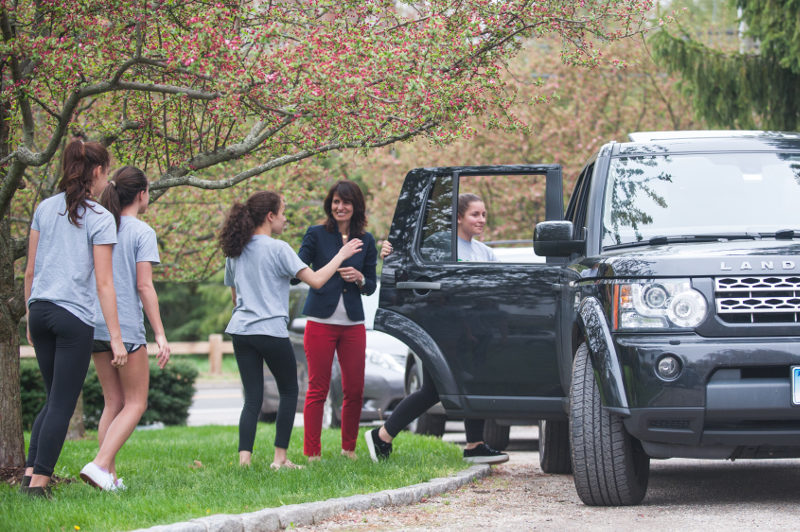
From the insanity of pick-up and drop-off traffic to the financial and environmental impact of wasted fuel, getting the kids to school in the morning isn’t always easy. Carpooling is a great way to mitigate these issues, but not all parents are quick to adopt this simple solution. Is a mandate for carpooling the best solution to a growing problem?
A Mandatory Carpooling Movement
Without a doubt, carpooling is a good idea. We’ve covered this elsewhere in our blog; from environmental concerns both globally and in the immediate environment of the schoolyard to time and cost efficiency, fewer cars on the road is better for everyone, especially when it comes to schools. Carpooling’s myriad benefits should be an easy sell, but when it comes to actually putting the plan in place, telling is often more effective than asking.
Though most parents would agree that they’d like to see fewer cars pulling into the school in the mornings and afternoons, many see this as someone else’s responsibility. The problem isn’t your car, after all, it’s all the other cars getting in your way. In spite of the many valid and proven arguments in favor of carpooling, the concept doesn’t often make the leap to execution. In order to get around this issue, some schools are moving to formally organized carpooling programs with a ban on individual parents dropping kids off on a daily basis.
Schools aren’t the only ones catching onto this idea. Governments in densely populated nations such as India and the Philippines have considered mandatory carpooling for both school and rush-hour commuter traffic. The motivation is simple: carpooling both gets people where they need to go and reduces traffic on the roads. Requiring everyone’s participation in a carpooling program guarantees a solution to problems caused by traffic congestion.
The Great Results of Mandatory Carpooling
It might seem extreme for schools or governments to make carpooling a requirement, but we’ve seen how good the results can be. This is the kind of rule that ends up making life easier for everyone involved, from the kids and parents to the teachers and administration at the school. Even neighbors who live or work adjacent to the school can see an improvement in traffic flow and parking issues when carpooling becomes the norm.
The Portuguese Bend Nursery School in Palos Verdes Estates, California is a great example of how easy and beneficial mandatory carpooling can be. The school is located on a private land reserve, and that means there’s not much room for traffic. Limited roads, protected wilderness and usage restrictions on private roads leading up to the school made carpooling a necessity. There simply isn’t the physical space for each child to get ferried to school in their own car.
Instead of giving up on this unique setting for a nursery school, the leadership at Portuguese Bend Nursery School decided that a mandatory carpooling program was worth the effort. Parents at this co-op preschool seem to agree; kids get access to an unspoiled natural wonderland, and all parents have to do is get together with a carpool buddy at the school to arrange a daily or weekly carpooling agreement.
Other Ways for Schools to Encourage Carpooling
Formal carpooling programs don’t always have to be mandatory. In the case of Portuguese Bend Nursery School, the mandate is the product of necessity. At Tahoe Parents Nursery School in South Lake Tahoe, California, parents volunteer to group into carpool “teams” of four families. The school helps oversee the program by setting specific guidelines for when and how often parents should drive, performing official driving record checks for each carpool parent, and even inspecting cars for safety. This example shows that schools don’t have to go as far as mandating carpooling to encourage and facilitate carpooling. Sometimes, schools can simply take initiative on logistics in order to foment a movement toward carpooling.
Whether voluntary or mandatory, GoKid will work directly with schools to implement a robust and efficient carpooling program, making the transition as easy and family-friendly as possible. While we think mandatory carpooling can be a fantastic idea, we’ve also helped dozens of parents voluntarily adopt this sensible approach to school transportation.


